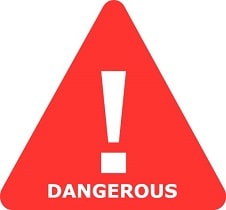Is EINECS 200-318-1 Safe in Breastfeeding
Question
I am a breastfeeding mother and i want to know if it is safe to use EINECS 200-318-1? Is EINECS 200-318-1 safe for nursing mother and child? Does EINECS 200-318-1 extracts into breast milk? Does EINECS 200-318-1 has any long term or short term side effects on infants? Can EINECS 200-318-1 influence milk supply or can EINECS 200-318-1 decrease milk supply in lactating mothers?
EINECS 200-318-1 lactation summary

- DrLact safety Score for EINECS 200-318-1 is 7 out of 8 which is considered Dangerous as per our analyses.
- A safety Score of 7 indicates that usage of EINECS 200-318-1 may cause toxic or severe side effects in breastfed baby.
- Our study of different scientific research indicates that EINECS 200-318-1 may cause moderate to high side effects or may affect milk supply in lactating mother.
- Our suggestion is to use safer alternate options rather than using EINECS 200-318-1 .
- Usage of EINECS 200-318-1 is in contradiction to breastfeeding hence if it is must to use EINECS 200-318-1 and there is no better alternative available then breastfeeding shall be stopped permanently or temporarily.
- Score calculated using the DrLact safety Version 1.2 model, this score ranges from 0 to 8 and measures overall safety of drug in lactation. Scores are primarily calculated using publicly available case studies, research papers, other scientific journals and publically available data.
Answer by Dr. Ru: About EINECS 200-318-1 usage in lactation
Drug is cleared from the body in 5 elimination half-lives. Return to breastfeeding is likely safe after 35 days of pumping-discarding of the milk.
Answer by DrLact: About EINECS 200-318-1 usage in lactation
Most sources consider breastfeeding to be contraindicated during maternal antineoplastic drug therapy.[1] It is probably impractical to resume breastfeeding after EINECS 200-318-1 therapy because of the drug's long half-life. Chemotherapy may adversely affect the normal microbiome and chemical makeup of breastmilk.[2]
EINECS 200-318-1 Side Effects in Breastfeeding
In a 4-month-old, neutropenia was probably caused by cyclophosphamide in a mother 9 days after the last of 6 weekly doses of 800 mg cyclophosphamide intravenously, 2 mg EINECS 200-318-1 intravenously and daily doses of 30 mg of prednisolone orally. Neutropenia persisted at least 12 days and was accompanied by a brief episode of diarrhea.[3] The contribution of EINECS 200-318-1 to the neutropenia cannot be determined.
Alternate Drugs
Letrozole(Dangerous)
Exemestane(Dangerous)
Vincristine(Dangerous)
Dasatinib(Unsafe)
Tamoxifen(Dangerous)
Nilotinib(Unsafe)
Mitoxantrone(Dangerous)
Dactinomycin(Dangerous)
Ipilimumab(Unsafe)
Mercaptopurine(Safe)
Cetuximab(Unsafe)
Carboplatin(Dangerous)
Hydroxyurea(Low Risk)
Paclitaxel(Dangerous)
Etoposide(Dangerous)
Fluorouracil(Dangerous)
Gemcitabine(Dangerous)
Alemtuzumab(Low Risk)
Nivolumab(Unsafe)
Doxorubicin(Dangerous)
Rituximab(Low Risk)
Vinblastine(Dangerous)
Cyclophosphamide(Dangerous)
Bevacizumab(Low Risk)
Bleomycin(Dangerous)
Docetaxel(Dangerous)
Cisplatin(Unsafe)
Pazopanib(Unsafe)
Vinorelbine(Dangerous)
Busulfan(Dangerous)
Trastuzumab(Unsafe)
Dacarbazine(Dangerous)
Imatinib(Unsafe)
Thioguanine(Dangerous)
Azelaic Acid(Safe)
Erlotinib(Unsafe)
Cladribine(Dangerous)
